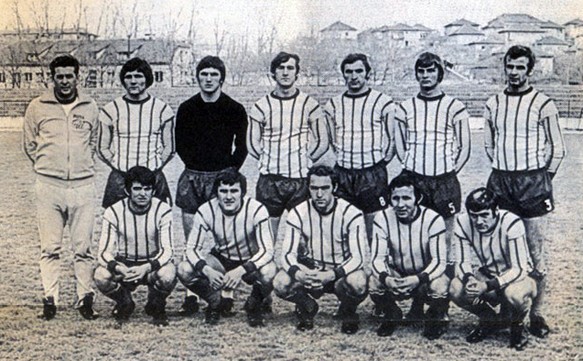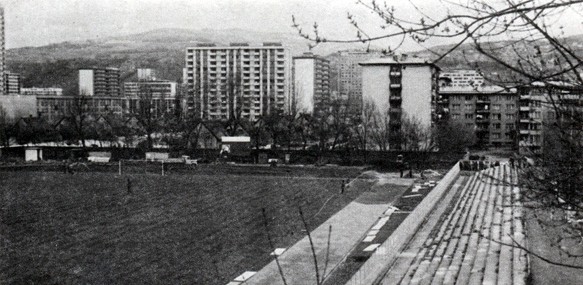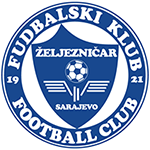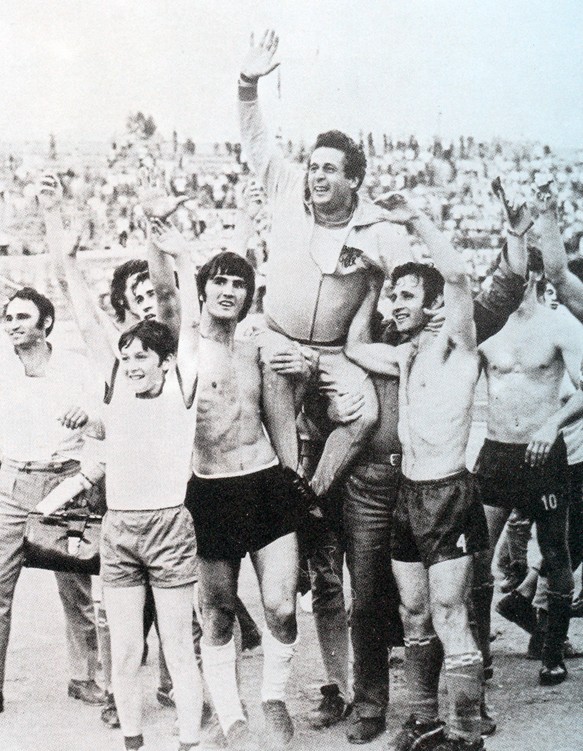The 1971/1972 season will forever be recorded as the brightest in the club’s long history. Not only was it the first national title for this club, which grew gradually and overcame numerous obstacles to become a respectable force, but it was also a testament to years of hard work with young players in their own youth facility and the dedication of the coaching staff led by Milan Ribar. The result was a famous team, widely regarded as the domestic leaders of “total” football that emerged on the world stage at that time. The large number of national team members across all categories was proof of the quality of their work, and the title won in 1972 was the crowning achievement of many years of effort.
Throughout the season, there was a race between two clubs – Željezničar and Crvena zvezda. The other clubs were not serious competitors at that time. From round to round, there were great results. The 8-0 victory against Maribor will remain recorded as the biggest victory of Željezničar in the Yugoslav first league club, and the 4-0 victory over Partizan in Belgrade in the last round also marked the definitive end of a tight and exciting fight. Željezničar became the champion of Yugoslavia. Slobodan Janjuš, Dragan Kojović, Velija Bećirspahić, Blagoje Bratić, Josip Katalinski, Enver Hadžiabdić, Branimir Jelušić, Božidar Janković, Josip Bukal, Edin Sprečo, Avdija Deraković, but also Slobodan Kojović, Fahrija Hrvat, Džemaludin Šerbo, Nusret Kadrić, Hajrudin Saračević, Miloš Radović, and Željko Rodić recorded their performances in that phenomenal season.
In addition to winning the championship title, the club also achieved notable results in the Kup sajamskih gradova (Cup of Fair Cities) during the same season. This competition eventually grew into the European League. The railwaymen successively eliminated clubs such as Brugge, Bologna, and St. Johnstone. However, once again, the Hungarians proved to be an insurmountable obstacle. In the quarter-finals, Ferencváros was better than the blue team. Both games ended with a score of 2:1, but the Hungarian team advanced to the semi-finals after penalty kicks.

Standing from the left: coach Milan Ribar, Bukal, Janjuš, Sprečo, Janković, Kojović, Bećirspahić; second row: Deraković, Hrvat, Hadžiabdić, Bratić, Jelišić;
Unfortunately, the club seemed unable to cope with the weight of its previous results and had a very bad start in the following season. Additionally, the team’s first historic appearance in the European Champions Cup was also recorded. The opponent was the English champion, Derby County, led by the great Brian Clough from the bench. The team lost 0:2 in England and 1:2 on Grbavica. On the other hand, the team performed quite poorly in the domestic championship, and only a furious end to the season brought them to fifth place in the table.
In the seasons that followed, the team’s results and placement in the table worsened. Finishing in eighth, ninth, and twelfth places were the consequences of the departure of the best players. Milan Ribar left the bench after nine years in 1976, and Željezničar finished the 1976/1977 season in last place, leading to the club’s relegation for the last time in its history. The change of generations and the departure of a great coach resulted in a sudden decline. In a highly competitive league such as the then Yugoslav one, there was no room for such a decline.

The return to Grbavica remained in the shadow of that. The reconstructed stadium was opened in the spring of 1976. The new concrete bleachers and floodlights, which made it possible to play night games, were a real small achievement, achieved with the help of many friends of our club.











